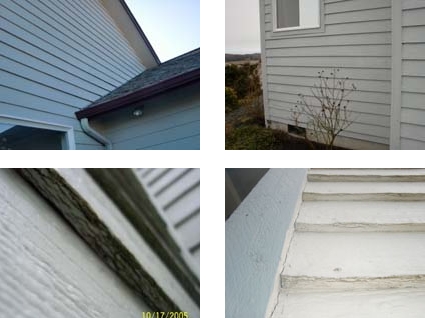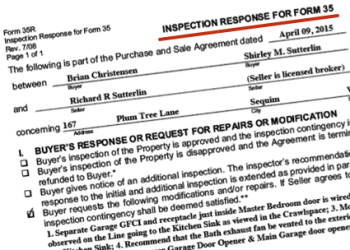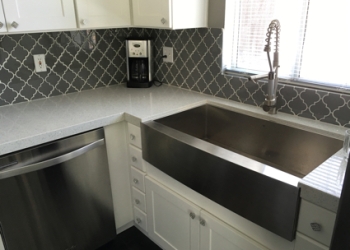The home inspection is a critical component in your due diligence once you have found your ideal retirement home. But what if the home inspection report indicates that there are some important repair items? How do you respond and what demands would you make of the seller?
The process of buying a home goes like this. First, you make an offer on a home. In your offer, you’ll have the main Purchase & Sale Agreement, plus you’ll have addendums. The addendums will typically include a Financing Addendum, unless you’re paying in cash without a loan, a Well Inspection, if there is a private well, and a Septic Addendum, if the home is not on a public or community sewer system, and among other possible addendums, you’ll have a Home Inspection Addendum. [If you’d like to know more about the home inspection, read my series of articles on Sequim Home Inspections.]
The Home Inspection is Vital
Second, once you have mutual acceptance with the seller, you step into the due diligence phase. This is where you have an opportunity to do research and find out if there are any problems with the home. Let me interject here that if you are a buyer from outside the Sequim or Port Angeles area, you need a Sequim Buyer’s Agent who will step into your shoes and be your boots on the ground, attending the inspections, and following up on the necessary steps within the contractual deadlines on your behalf. This is another reason I do not recommend that you hire the listing agent, who is working for the seller and motivated to get the transaction closed. That’s why I often refer to your “buyer’s agent.”
The Home Inspection Complete
Third, when your home inspector has give you his written home inspection report, you have an opportunity to ask the seller to repair items or reduce the price. This is where you have to be careful. This is also where some buyers (and some sellers) make a serious mistake.
Imagine negotiating to buy a home, and imagine that you’ve gotten the seller to come down by $30,000 from his listing price. As a buyer you’ve accomplished something great already, and you’ve beaten up on the seller pretty bad. But this is America, and that’s how negotiating in a free enterprise system works. But here’s where a buyer can take a major misstep and put the entire transaction at risk.
If the home inspection report shows that there are several hundred dollars (or even a couple of thousand dollars) in repairs needed, it is not necessarily wise to demand that the seller fix those items. Of course, you could also demand that the seller just reduce the price, but that may not be wise either. What buyers often don’t realize is that they may already have pushed the seller as far as the seller is emotionally or psychologically willing to go. The seller feels he took a whipping when he reluctantly agreed to the buyer’s counteroffer to his counteroffer, and the seller often feels they sold for far less than they wanted and far less than they deserve. At this stage of the transaction, the seller is often feeling that their back is up against the wall, and they are very defensive when it comes to any more demands. If the buyer demands the seller fix something for a few hundred dollars, the seller is often offended and many sellers have told their real estate agent, “I’ll be darned if the buyer is going to nickel and dime me to death! I already came down $30,000 on my price. I’m not going down any further.”
I have seen buyers and sellers walk away from the transaction over a few hundred dollars because it was a “matter of principle” for both parties. Do not let your retirement dream turn into a bitter fight over a few hundred dollars (or even a few thousand dollars) when you already negotiated the price downward by tens of thousands of dollars. Handling the Home Inspection and the Form 35R Inspection Response is one of the last but most important steps in your due diligence.
Last Updated on January 8, 2013 by Chuck Marunde


































I am supposed to close on my first house tomorrow (8/23/2022) in Tacoma, WA. Replacing a big window and fixing the other windows so they open/close and lock properly as well as fixing the garage door was part of the 35R agreed upon terms. They had the window people at the house today and that was the final thing they had to do. I did the walk through this evening and the big window was replaced, the other windows were not fixed (one didn’t lock, 2 didn’t stay up, the balance springs were jamming up in two others). The garage door had not been fixed (it opens properly only 1 out of about 6 times, otherwise it stalls out at about 3 feet above the ground).
What are my options? My realtors say I must proceed with signing on schedule or else I can be sued for breach of contract. But if I sign, I fear I will lose any leverage to get these things taken care of by the seller as agreed to in the 35R. The realtors say they will ‘work it out’ to get this done on closing day or ASAP because their reputations are on the line.
Advice much appreciated! Thank you
Alyssa, assuming you’re broker completed the Form 35R correctly, and the seller agreed and signed properly, you are right in saying your leverage is not signing closing papers. Check your Form 21 on the first page of the Purchase and Sale Agreement to make sure your buyer’s agent checked the box that says that the seller’s only remedy if you breach is to retain your earnest money, which means he cannot sue you as someone apparently threatened. Even if your buyer’s agent screwed that up and didn’t protect you, no seller who is in breach himself is going to sue you claiming you’re the one who breached. He would spend a lot on attorney’s fees to look like a fool.
Your only leverage is to threaten not to close until they have all the required and agreed upon repairs completed. That would almost certainly require a closing extension of a few days, which could create problems if you are getting a loan. A loan will have its own terms, which may include a deadline for closing because of a locked in interest rate and terms. If the closing extension of a few days means your loan cannot close, you will lose the purchase, and probably end up fighting over the earnest money with the seller.
Realtors love to say they will “work things out,” but what does that mean? It means they make some phone calls, email or text a few times, but it’s not a guarantee of anything. One option that you might choose is to say to your own buyer’s agent, “Look, the seller agreed under the terms of the Form 35 to repair these items prior to closing. I’m not closing if they aren’t repaired. You don’t get paid a commission if I don’t close. The seller’s broker doesn’t get paid if we don’t close. You get this taken care of, or I’m not closing. That’s it. Call me when you’ve gotten the repairs done and we’re ready to close.”
Believe me, your agent and the seller’s agent are motivated to get these repairs fixed asap and get you to the closing table so they can get paid.
My brother recommended I might like this blog. He was entirely right. This post actually made my day. You cann’t imagine just how much time I had spent for this information! Thanks!
How long does the seller have to complete and send the buyer the R35?
Answer: The buyer has 10 days by default to submit the Form 35R, although that can be whatever number of days the parties agree on.